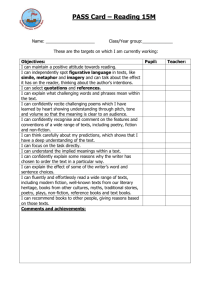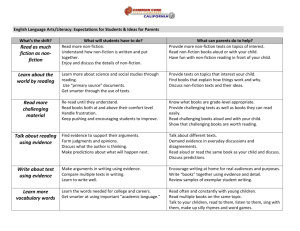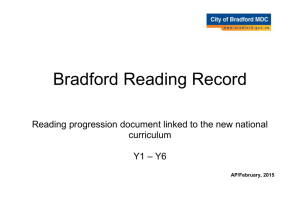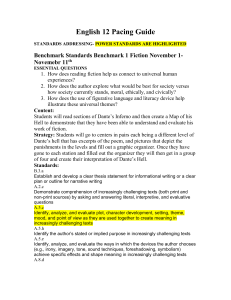Reaching Higher Reading Targets Y5
advertisement
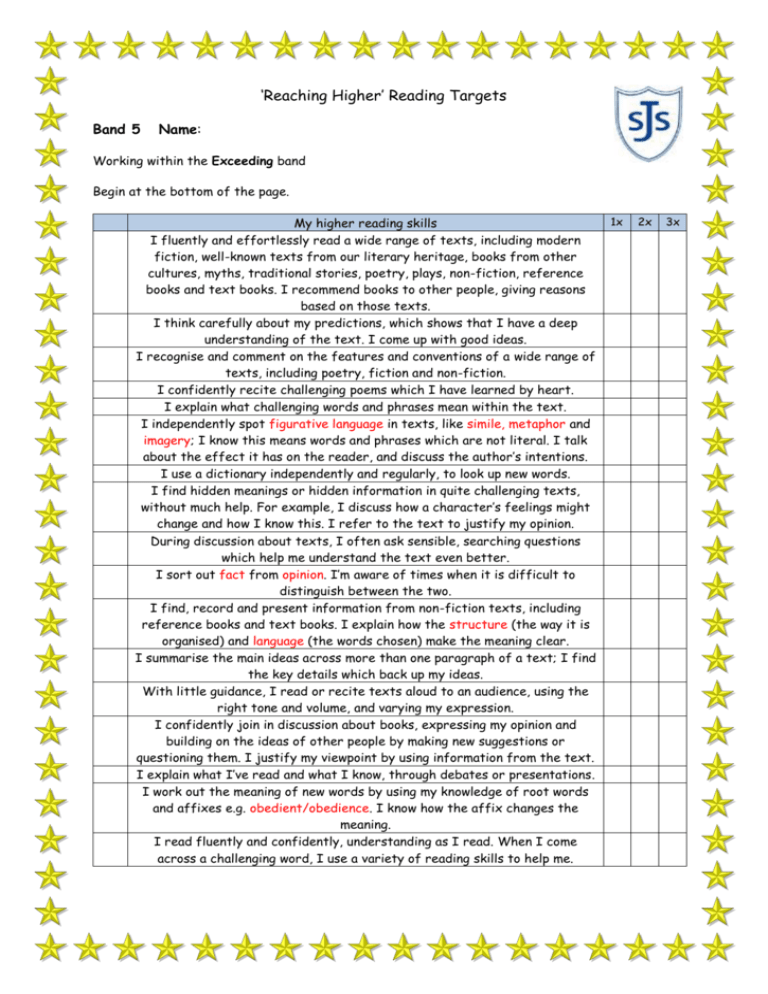
‘Reaching Higher’ Reading Targets Band 5 Name: Working within the Exceeding band Begin at the bottom of the page. My higher reading skills I fluently and effortlessly read a wide range of texts, including modern fiction, well-known texts from our literary heritage, books from other cultures, myths, traditional stories, poetry, plays, non-fiction, reference books and text books. I recommend books to other people, giving reasons based on those texts. I think carefully about my predictions, which shows that I have a deep understanding of the text. I come up with good ideas. I recognise and comment on the features and conventions of a wide range of texts, including poetry, fiction and non-fiction. I confidently recite challenging poems which I have learned by heart. I explain what challenging words and phrases mean within the text. I independently spot figurative language in texts, like simile, metaphor and imagery; I know this means words and phrases which are not literal. I talk about the effect it has on the reader, and discuss the author’s intentions. I use a dictionary independently and regularly, to look up new words. I find hidden meanings or hidden information in quite challenging texts, without much help. For example, I discuss how a character’s feelings might change and how I know this. I refer to the text to justify my opinion. During discussion about texts, I often ask sensible, searching questions which help me understand the text even better. I sort out fact from opinion. I’m aware of times when it is difficult to distinguish between the two. I find, record and present information from non-fiction texts, including reference books and text books. I explain how the structure (the way it is organised) and language (the words chosen) make the meaning clear. I summarise the main ideas across more than one paragraph of a text; I find the key details which back up my ideas. With little guidance, I read or recite texts aloud to an audience, using the right tone and volume, and varying my expression. I confidently join in discussion about books, expressing my opinion and building on the ideas of other people by making new suggestions or questioning them. I justify my viewpoint by using information from the text. I explain what I’ve read and what I know, through debates or presentations. I work out the meaning of new words by using my knowledge of root words and affixes e.g. obedient/obedience. I know how the affix changes the meaning. I read fluently and confidently, understanding as I read. When I come across a challenging word, I use a variety of reading skills to help me. 1x 2x 3x
